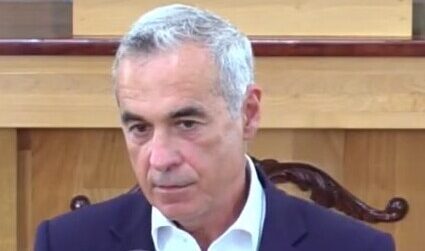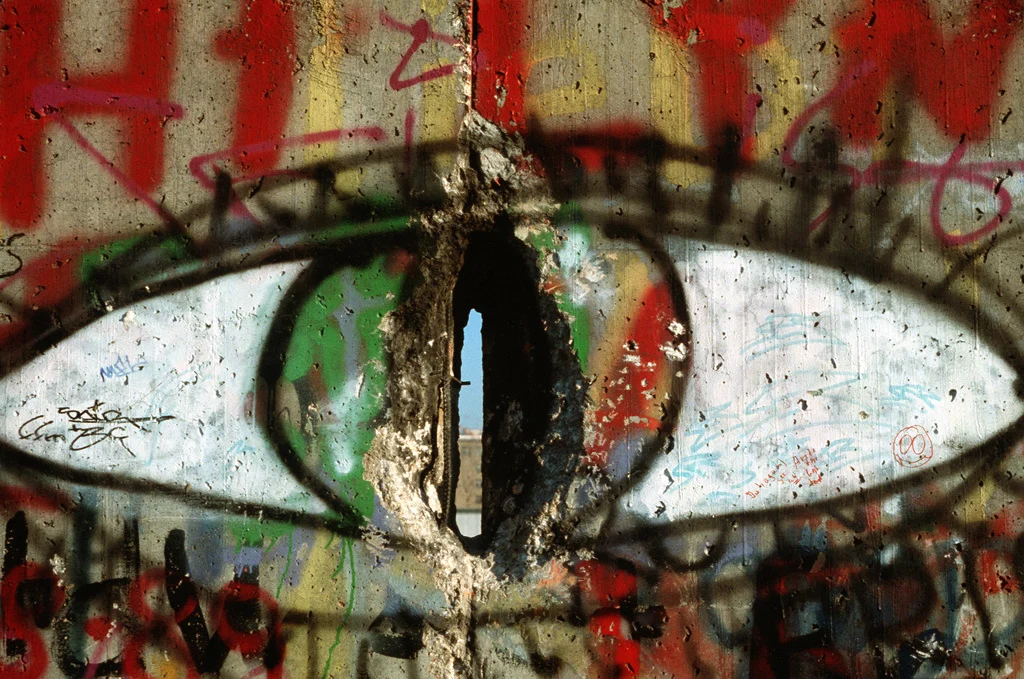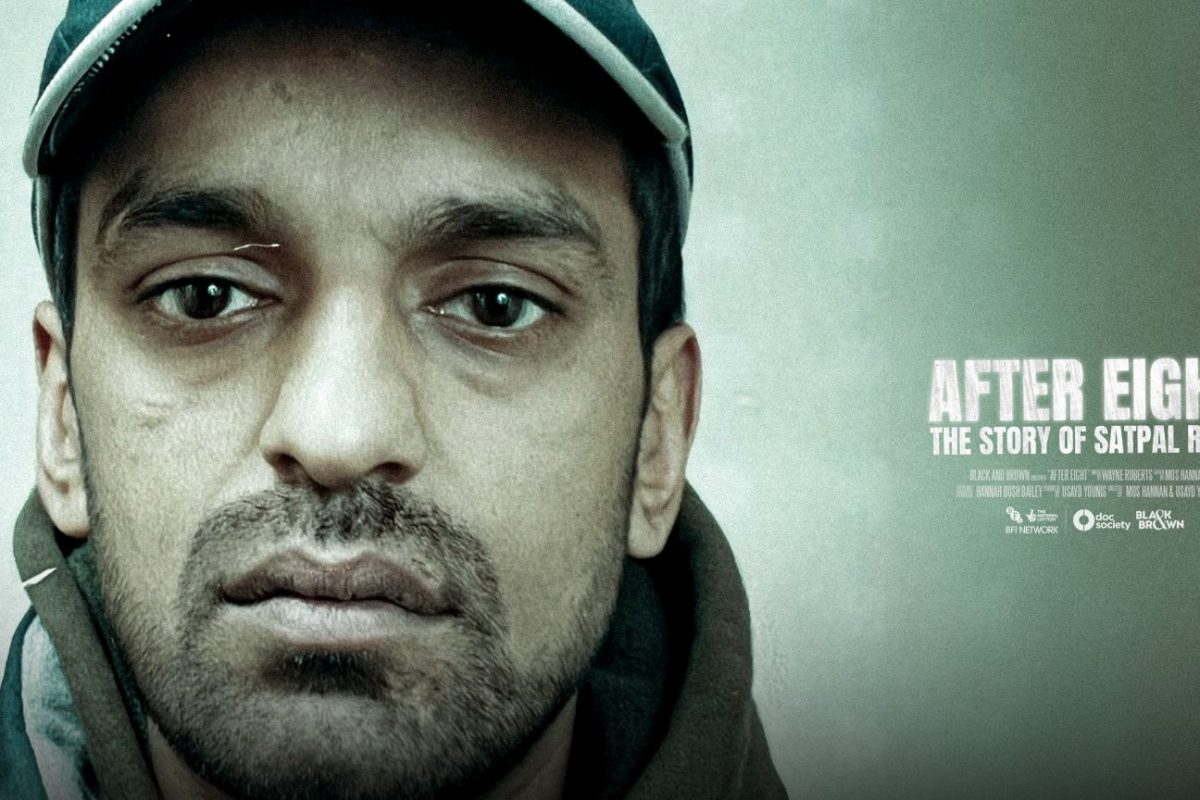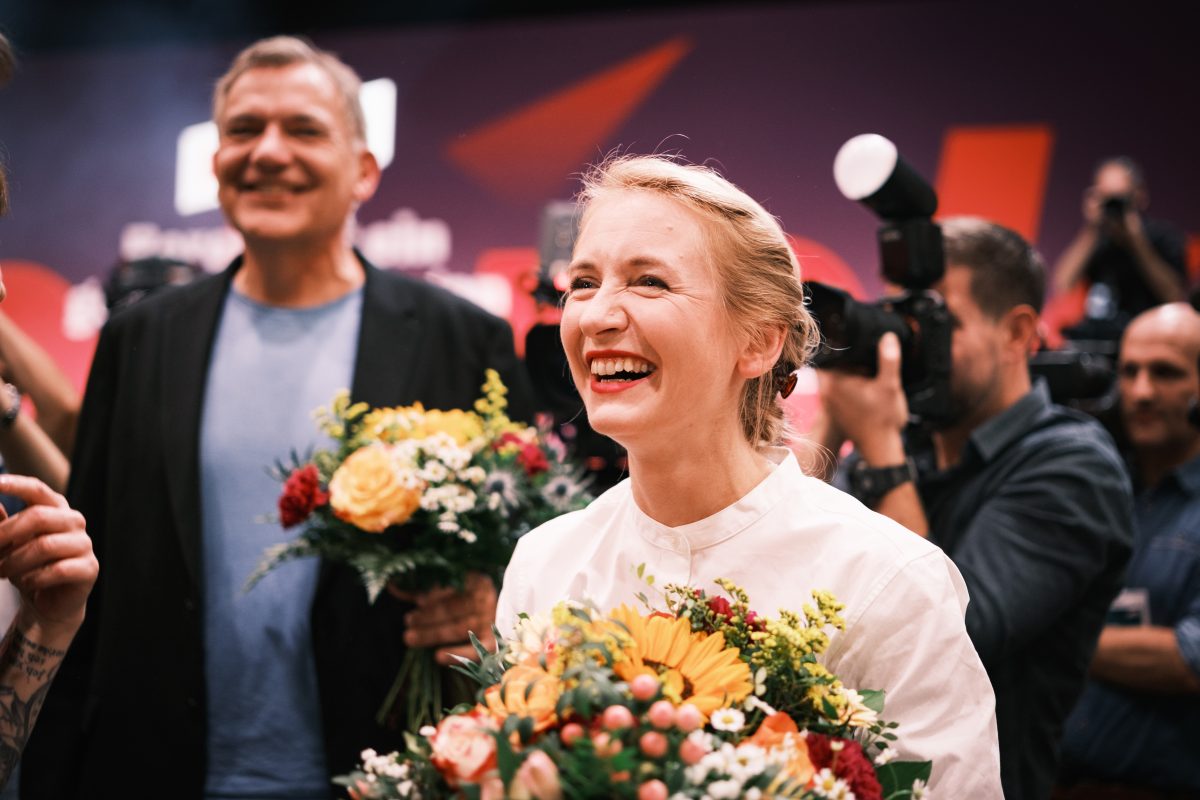A few weeks ago, very few people knew anything about Călin Georgescu. Besides the few times his candidacy for prime minister was floated, there was no indication that his run as an independent candidate for the Romanian presidency had any traction whatsoever. Then came the first shock: with almost 23% of the vote, Georgescu won the first round of one of the most contested elections in Romanian history after barely registering on pre-election polls.
This dark-horse result threw Romania along with the entire Euro-Atlantic media and policy apparatuses for a loop, scrambling for explanations and solutions for the rise of yet another far-right, anti-Western statesman in Europe. The explanation that they came up with is facile: Russia. And the solution came as the second shock: the Romanian Constitutional Court annulled the presidential elections and ordered that they be redone from scratch. This unprecedented ruling may have addressed the immediate trigger of the Georgescu surprise but does little about the causes of the rightward swing, leaving the future of Romanian democracy uncertain.
The actors
In the weeks since the November 24 elections, Romanian politics, media, and civil society have all moved extremely fast. The right is taking advantage of a highly fragmented political landscape, and to make sense of its rise, a brief overview of the main relevant parties and their central figures is useful. Here they are:
PSD (Partidul Social Democrat, the Social Democratic Party): seen by many as the inheritors of the Romanian Communist Party, PSD has been the main force in Romanian politics. It leans left on some matters, regularly raising pensions or social benefits, but it is a party of crony capitalism, always embroiled in scandals of corruption and abuse of power, and deeply conservative on social issues.
- Marcel Ciolacu: presidential candidate (third place, 19.15%), current prime minister in a PSD-PNL grand coalition. A former provincial politician/fixer, he appeared center stage after PSD’s defeat in the 2019 presidential elections. His own loss would have caused the first presidential run-off without a PSD candidate.
PNL (Partidul Național Liberal, the National Liberal Party): the other dominant political party, PNL presents itself as the center-right alternative to PSD. It has been similarly plagued by corruption scandals, however, and its coalition with PSD has tainted it as part of “the establishment.”
- Nicolae Ciucă: presidential candidate (fifth place, 8.8%), retired army general, and former prime minister in the PSD-PNL coalition. Completely lacking charisma or political flair, his humiliating results caused his resignation from PNL’s leadership, being replaced by Ilie Bolojan.
- Klaus Iohannis: president for the last two terms, technically independent, as the sitting president is not allowed to be a party member. He won elections as the Western foil to PSD’s Balkan corruption, but his haughty, incommunicative presidential style, his interventions in coalition politics, and his high expenses in office have brought his approval rates to a historic low.
USR (Uniunea Salvați România, the Save Romania Union): young and socially progressive, but at the same time, neoliberal and right-wing, USR arose as the country’s hope to fight corruption and the establishment by appealing to entrepreneurs, students, and urban youth. Internal scandals and splinters, a failed coalition government with PNL, and the radicalization of some of its central figures toward nationalism and libertarianism have extinguished the hopes of many USR supporters.
- Elena Lasconi: presidential candidate (second place, 19.18%), former journalist, currently mayor of a small city. She lost her position as the head of USR’s European elections list after declaring that she had voted yes in a 2018 anti-LGBT referendum but made a comeback after USR’s disappointing results in the European and local elections.
AUR (Alianța pentru Unirea Românilor, the Alliance for the Union of Romanians): entered the Parliament in 2020, on a far-right, Covid-skeptical platform. The name references the union of Romania and Moldova, a key rallying cry for Romanian nationalists. Two parties that entered the Parliament in the 2024 elections, S.O.S. Romania and POT (Partidul Oamenilor Tineri, the Party of Young People), are splinters from it, but all three coalesce into a yet-informal “sovereigntist pole.”
- George Simion: AUR presidential candidate (fourth place, 13.86%), a former ultras gallery leader who made his career in ultranationalist, unionist social movements.
- Călin Georgescu: independent presidential candidate, but supported by POT (first place, 22.94%). He held positions at the UN and at the Club of Rome, working on issues of sustainability. Proposed by AUR as prime minister in 2021, he later left the party when Simion criticized his openly pro-fascist statements.
Special guest: The Constitutional Court of Romania (CCR), one of the highest courts in Romania, ruling on issues of constitutionality. Its nine members are nominated politically by the President and the Parliament. Its current line-up: four PSD nominees, three Iohannis, one PNL, and one UDMR (the political party of the Hungarian minority).
The action
The battle lines of the Romanian elections were both clearly drawn and muddled. The dominance of PSD and PNL and its contestation by multiple other parties created the appearance of two camps: the establishment (or “the system,” as Romanians tend to call it) and the anti-establishment. PSD banked on its incumbency and took its traditional base for granted, while PNL tried to center the hopeless Ciucă’s military laurels (the promotion of his 2024 memoir, A Soldier in the Service of the Country, ran up a €2-million bill).
On the other side of the divide, USR and AUR tried to find an identity that appealed to the negatively defined anti-establishment bloc by breaking out of their respective bubbles. Lasconi upped her conservative profile by wearing two ostentatious crucifixes around her neck, symbols of her attempt to overcome the limitations of a party targeting students and entrepreneurs. Simion moderated his far-right messaging to appeal to more than an ultranationalist niche. The other far-right candidate with a public profile, MEP Diana Șoșoacă (S.O.S. Romania), fell prey to narrative foreshadowing: in a decision decried by many as undemocratic, the CCR banned her candidacy due to her anti-Western discourse.
After Georgescu’s win, it became obvious that the clarity of this two-sided contest had always been an illusion. With both PSD and PNL candidates at historic electoral lows, the vague category of “anti-establishment” came on top but lost any unitary meaning. Lasconi’s success in qualifying for the run-off, celebrated by neoliberal, pro-European groups, was balanced by the victory of an independent, far-right, pro-Russian minor politician. Anxieties about where Georgescu’s 23% would go in the parliamentary elections on December 1 were only partly alleviated: the sovereigntists gained around 32% of the vote, with AUR coming second overall, but PSD, which came first with 22%, will probably be able to etch out a highly unstable coalition with PNL, USR, and UDMR.
Political reactions were mixed. Although he himself lost, Simion celebrated a sovereigntist victory. Bolojan, whom Lasconi had put forth as prime minister under her potential presidency, endorsed the USR candidate and declared his support against anti-democratic forces. Ciolacu delayed his own endorsement (unsurprisingly, given that USR campaigns have always demonized PSD and its voters) but came through after investigations into Georgescu’s campaign picked up steam.
This patchy popular front, however, is far from an antifascist show of strength. In the wake of the parliamentary elections, both Ciolacu and Bolojan reacted by reaffirming their commitment to traditional and national “values.” Their history shows that their support for heteronormative families, Orthodox Christianity, and anti-LGBT policies is not only empty words. In the meantime, the far-right was emboldened, as a commemoration of an interwar fascist leader just outside of Bucharest took place with open Nazi salutes.
But the mainstream parties’ electioneering quickly became obsolete when intelligence agencies came into play. After an emergency session of the Supreme Council of National Defense, its president, Iohannis, decided to declassify intelligence reports alleging that Georgescu’s campaign received funding and social media support from foreign state and non-state actors. The evidence is circumstantial and the only mentioned name is Sputnik, although even this is a mere “potential” connection. But there is no doubt that Russia is the main suspect, and Georgescu himself has not hidden his Russian sympathies. The allegations might also be true—Georgescu had registered his campaign funding as zero, which, even as his reach was primarily on TikTok, is an obvious, brazen lie.
Things escalated quickly after the declassification. The CCR had denied a challenge to the first round of the presidential election, although it ordered a recount, a hastily organized logistical mess that loomed over the parliamentary election and ultimately only confirmed the results. The reports, however, led to new challenges on the Thursday before the December 1 run-off, admitted by the Court on Friday, when the early voting for Romanians living abroad had already started. Ciolacu praised the reestablishment of order and Ciucă called for calm. But the anti-establishment candidates, Lasconi and the sovereigntists, cried foul – and went crawling to Donald Trump and Elon Musk. The decision, however, is final; the elections have been annulled, and will have to be redone from scratch, starting with collecting signatures and validating candidacies.
The fallout
Is this the end of Romania’s descent into far-right chaos? No. The CCR decision might have stopped Georgescu’s election, as he is unlikely to be allowed to run again. The intervention of intelligence services and courts into the electoral process, however, weakens democratic accountability and only stokes the anti-establishment fire. The ruling itself is highly contestable, as it refers strictly to financing and intervention that went on during the electoral campaign. One does not have to be a far-right nationalist to paint an ugly picture: a politically nominated court relied on vague intelligence reports to invalidate an uneventful election (which had already been confirmed by the same court) literally overnight. All at the initiative of an unpopular president who will now get a few more months in office.
The morning after the annulment, large-scale investigations against Georgescu’s network started forcefully. This is undoubtedly an absolute positive. Georgescu has run on a platform of conspiracy theories, ultranationalist messaging, and economic promises. He is not a random far-right lunatic, but embedded in international and domestic networks of fascist armed groups and capitalists who, yes, have business connections to Moscow and to various Romanian nationalist movements. The fact that organized right-wingers are arrested in Romania is not bad news.
But, again, one does not have to be a conspiracy theorist to ask an obvious question: why so late? Georgescu’s declarations praising the Legion of the Archangel Michael, Romania’s larger interwar antisemitic fascist movement, and Ion Antonescu, the country’s WWII military leader, Hitler ally, and Holocaust perpetrator, have been so obvious that even AUR forced him out for courting legal trouble. Nonetheless, he was never prosecuted for his statements. And that was only the most visible manifestation of his far-right radicalism. The organized networks he is a part of did not just appear overnight, and the elections were certainly not the first time that intelligence services heard about them.
One theory is that PSD secretly supported the far right in the hope that it would eat into Lasconi’s own anti-establishment base, a strategy that obviously backfired. Regardless of whether this is true, there is a bigger picture here: Georgescu is the tip of a societal iceberg that reaches into the establishment itself (the far-right parties had the highest share of retired intelligence and military officers among their parliamentary nominees). The conservatism of the mainstream parties is not an electoral strategy, but the light version of the nationalism that has been brewing across the political elites and society of large and gives rise to ultranationalist groups and parties.
Nicolae Ceaușescu’s regime, communist as it may have been, was deeply nationalist in a way that continued after 1989, with an added twist—the glorification of interwar culture, society, and anti-communist fighters. The same interwar that created the Legion and other fascist organizations, from which much of the anti-communist resistance was drawn. Popular culture, newscasts and highbrow publishing houses have all legitimated Romanian interwar society and made Holocaust perpetrators, Orthodox fascists, and war criminals palatable as symbols of a better, pre-communist past. AUR and Georgescu are simply the most extreme expressions.
This fascist lineage and nostalgia is legitimated by their willingness to criticize Romania’s capitalist present. This does not make them in any way left-wing: their social base are the petty bourgeoisie, expropriated by transnational capital, and Georgescu’s economic proposals are the same mixed bag of some welfare measures, protectionism, and corporatism we see everywhere on the populist right. But his simple message of “food, water, energy” appealed to an immiserated population that continues to pay the cost of the transition to capitalism while capital runs wild. No surprise, as well, that his message gained the support of the part of the diaspora that has been used and abused in European factories and warehouses and who have been building a nationalist understanding of themselves since Romania’s post-communist mass outmigration began.
The people who voted for him are not dupes. They are not fooled by false economic promises, but simply support a person who tells them that the transition has failed them, and not that they have failed to become the proper capitalist entrepreneurial subjects needed in the Western world. They are no innocent angels either, as Georgescu’s explicitly fascist messaging resonates with values and behaviors of much of Romanian society. The simple truth of the matter is that Georgescu and the far-right have a broad base among Romanians, one with material interests and a coherent ideology.
That base will not disappear if Georgescu is arrested after winning an election. And that base will also not disappear if they are forced to make an abstract geopolitical choice between the West and Russia. That choice has been made for them, and it did not go in their favor. The Romanian left needs to wrestle the critique of this choice and the critique of capitalism back from the far right. As real as Russian intervention in the electoral campaign might have been, it’s only possible consequence is that it was Georgescu, and not Simion or another right-winger who won the election. Undemocratic crackdowns and geopolitical browbeating will only continue to legitimate and hide the extent to which, in direct continuation of its history, the right is gaining ground across all groups of Romanian society.




